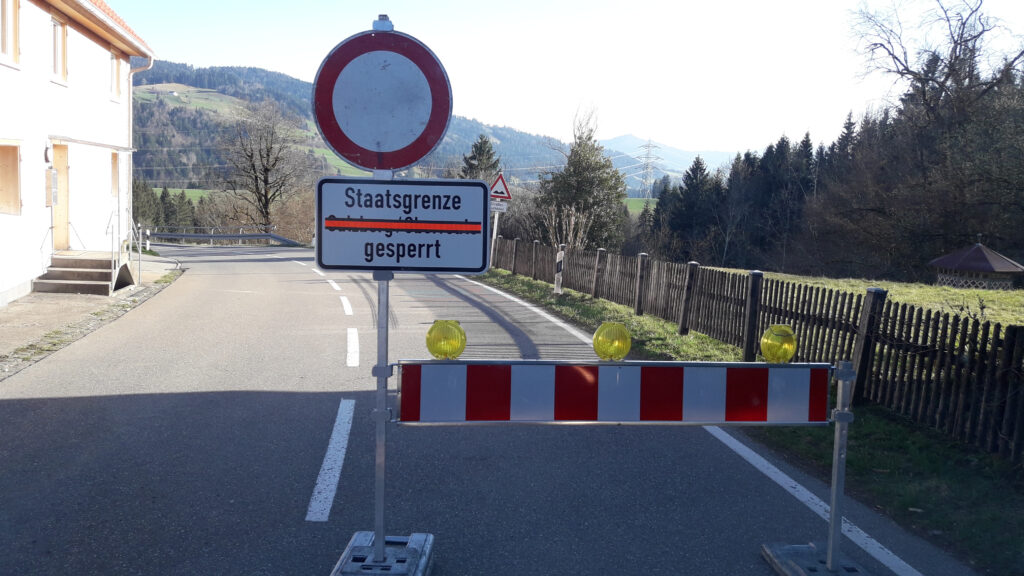Austria has shut down 24 small border crossings with Hungary and Slovakia to stop foot-and-mouth disease (FMD) from entering its territory. This decision follows confirmed FMD outbreaks in both neighboring countries. Slovakia has already declared a state of emergency, and Hungary reported its first FMD case in 50 years earlier this week.
The closures affect minor crossings commonly used by locals, tourists, and farm workers. While larger checkpoints remain open, they now have strict health controls in place. Austrian authorities hope this fast action will protect the country’s livestock and prevent a possible disaster for its farm economy.
What Is Foot-and-Mouth Disease?
Foot-and-mouth disease is a viral illness that spreads quickly among animals with cloven hooves. These include cattle, pigs, goats, and sheep. The virus does not harm humans, but it can survive on clothes, shoes, and vehicles. That’s why strict rules are needed to stop it from spreading.
Animals with FMD show signs like fever, blisters in the mouth and feet, and trouble walking. The disease weakens them, reduces meat and milk production, and spreads rapidly within herds.
Outbreaks often lead to mass culling of animals, strict quarantines, and export bans. Countries lose millions in trade, and farmers may never fully recover from the financial hit.
Hungary and Slovakia in Crisis Mode
The recent outbreak in Hungary is the first in over five decades, which has alarmed both local and international health officials. Hungary’s agriculture ministry responded by sending out soldiers, setting up disinfection zones, and blocking off affected farms. Teams are also working with European health agencies to contain the situation.
Slovakia, which shares long borders with both Hungary and Austria, confirmed the virus on three farms. The government quickly declared a state of emergency, enabling faster response and resource allocation. Veterinary teams are checking animals, culling infected livestock, and disinfecting farms.
Experts believe the virus may have crossed into Slovakia from Hungary. However, investigations are still ongoing.
Austria Takes No Chances
Austria is acting fast to avoid the kind of outbreak that could destroy its meat and dairy industries. Shutting down 24 border crossings may seem extreme, but officials say it’s the best way to protect farms.
“These are not decisions we take lightly,” said Austrian Agriculture Minister Norbert Totschnig. “But the risk to our livestock is too great.”
Large crossings remain open but under heavy control. All travelers must step over disinfection mats, and vehicles are sprayed before entering. Police are also stopping cars and checking for meat products, which may carry the virus.
“Even a small amount of infected meat could bring this virus into our farms,” said one customs officer at the Hegyeshalom border post.
What Happens If FMD Reaches Austria?
If foot-and-mouth disease enters Austria, the economic impact could be huge. The country’s livestock industry is worth billions and includes export deals with countries around the world. A confirmed case would likely lead to:
-
Mass culling of infected animals
-
Temporary shutdown of affected farms
-
Immediate bans on meat and dairy exports
-
Long-term damage to Austria’s farming reputation
Similar outbreaks in the past offer painful lessons. In 2001, the United Kingdom suffered one of the worst FMD outbreaks in history. Over six million animals were culled, and the cost reached £8 billion. Entire rural communities were affected, and tourism also took a big hit.
Daily Monitoring and Preparedness Plans
Veterinarians and health officials in Austria are visiting farms near the borders and checking animals for signs of infection. Farmers are being asked to limit movement of animals and workers, avoid visitors, and report sick animals at once.
Austria is also working with the European Food Safety Authority (EFSA) and the World Organisation for Animal Health (WOAH) to get updates and advice.
“If we act now, we can keep our animals safe and our farms running,” said Dr. Eva Lang, a veterinary disease expert in Vienna. “Prevention is better than cure.”
Austria is updating its emergency plans to include possible quarantine zones, transport bans, and mobile vet units.
What Can the Public Do?
While foot-and-mouth disease doesn’t infect humans, the public can still help stop its spread. Authorities are asking people to:
-
Avoid farms and rural areas near the border
-
Clean shoes and clothes after visiting other countries
-
Not bring meat or dairy from abroad
-
Report any signs of sick animals to local authorities
Tourists are also being warned to follow all health rules at the border. “Your shoes or bags could carry the virus without you knowing,” said one health official.
The coming weeks are critical. Austria’s fast action could stop the virus before it enters the country. But if the situation in Hungary and Slovakia worsens, more controls may follow.
Officials stress that this is a regional issue that needs international cooperation. Austria is calling on all nearby countries to enforce stronger biosecurity laws and share outbreak data openly.
As the crisis unfolds, Austria’s farmers are watching closely, hoping their herds stay safe.
